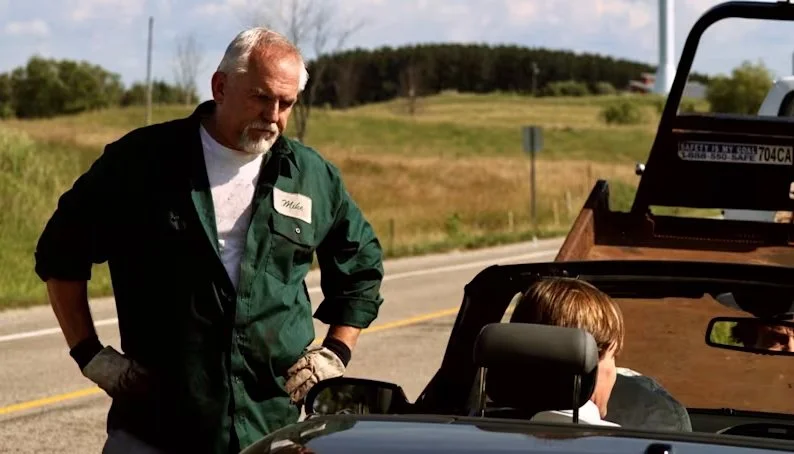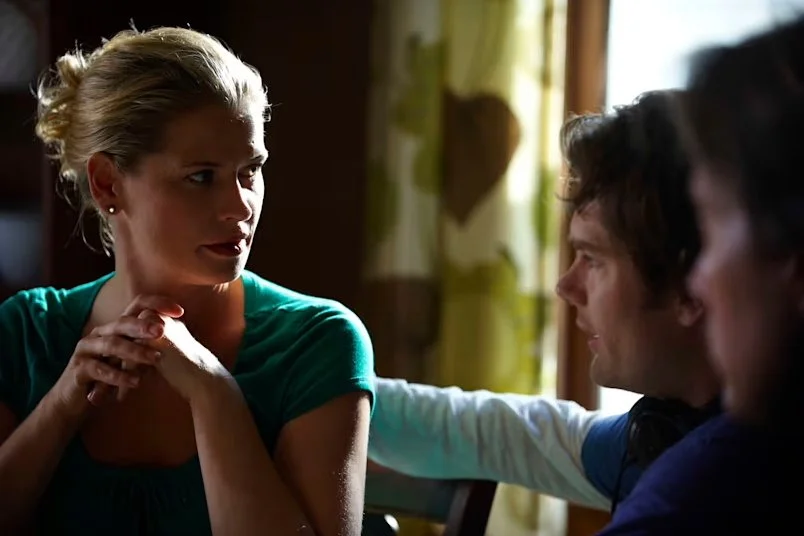‘What If …’ Re-Released 15 Years Later: Why It’s Still A Great Faith-Based Film
(REVIEW) A lot has changed in faith-based films since the genre’s modern era began more than 20 years ago. Once a frequent target of mockery for poor acting and writing, the industry has come a long way. Today, shows like “The Chosen” and films such as “The Best Christmas Pageant Ever” are lighting up the box office and earning “Certified Fresh” ratings on Rotten Tomatoes.
It’s in this more welcoming environment that the 15th-anniversary edition of “What If…” is being released — one of the strongest early entries in modern faith-based cinema. The film features a creative team that would go on to become influential figures in the industry: Dallas Jenkins wrote and directed the film long before his breakout success with “The Chosen.” Cary Solomon and Chuck Conzelman, who co-wrote the film, would later pen the record-breaking “God’s Not Dead.” Kevin Sorbo, the film’s star, would also go on to lead “God’s Not Dead,” launching the next phase of his career in the faith-based space.
I remember watching “What If …” when it was first released in 2010 and thinking it was one of the best faith-based films I’d seen. I was disappointed it didn’t make a bigger splash at the time — it reaffirmed some of my cynicism about the faith-based film industry.
READ: How ‘Eddington’ Hits (And Misses) Its Pandemic-Era Satire Of America
Now, 15 years later, with Jenkins and others having risen to prominence, “What If …” serves as an encouraging reminder of how far the genre has come. It’s also fascinating to revisit the film and reflect on how much both the industry — and the world — have changed since.
“What If …” follows Ben Walker (played by Sorbo), a successful businessman who abandoned his faith and his fiancée, Wendy (Kristy Swanson), to pursue wealth and status. On the verge of proposing to his glamorous new girlfriend,
Ben is suddenly transported by a no-nonsense angel named Mike (John Ratzenberger) into an alternate reality — one that shows what his life might have looked like if he had followed God’s plan and pursued ministry with Wendy.
Thrown into this “what if” version of his life, Ben must figure out how to be a loving husband and father to Wendy and their daughters, Kimberly (Debby Ryan) and Taylor, if he ever hopes to return to his old life.
Photo courtesy of Fathom Entertainment
Quality acting and writing
What stands out immediately is the film’s strong writing and acting — qualities that still hold up better than many faith-based films released today. While there are more projects now that match or exceed this level (like “The Chosen” or this year’s “Last Rodeo”), “What If …” remains a standout.
The banter is sharp and the dialogue feels natural — when it veers from realism, it does so for entertainment, not to deliver a sermon. The stakes feel real without veering into melodrama and the tone stays age-appropriate.
Sorbo’s Ben is a charming, fast-talking businessman, reminiscent of a family-friendly Harvey Specter from “Suits.” His verbal sparring with both friends and foes creates fun dynamics, particularly with the blunt and divine Mike. As Ben stumbles through family life with Wendy and his daughters, the resulting culture clash is both funny and sincere. Swanson and Ryan play familiar archetypes — the loving Christian mom and the bratty teen daughter — but their performances feel grounded and believable.
Unlike many faith-based films of the time, the film presents nuanced characters and themes. Ben isn’t depicted as a bad person: He’s more generous than his colleagues, and he’s in a committed relationship with a woman he genuinely cares about. The issue is that his life is centered around himself, rather than serving others or fulfilling God’s plan.
In the film’s third act, Ben learns that he won’t be allowed to keep the happy ending he’s come to cherish, no matter what he does. The film doesn’t shy away from this emotional blow and allows Ben to react like a real person would. It’s a rare and moving moment of emotional realism, even as the film guides him toward redemption. Subtle filmmaking choices — like the contrasting musical themes between Ben’s old life and his “what if” life — add depth that elevates the storytelling.
One especially interesting element in retrospect is how prophetic the film was regarding the careers of those involved. Sorbo, Solomon and Conzelman became key figures in the faith-based industry thanks to “God’s Not Dead” (and I have plenty of thoughts about that movie).
Jenkins, of course, would go on to create “The Chosen,” which has since become the new benchmark for Christian filmmaking. Whether or not you’re a fan of those later projects, “What If …” deserves credit for its role in launching these creators’ trajectories.
That said, “What If …” isn’t without flaws — and many of them tied to the conventions of the faith-based genre. In some ways, it feels like a product of its time, following the formula of “dad works too much” movies like “Hook” or “The Family Man,” popular a decade prior. Faith-based films often adopted Hollywood formulas years after their prime, and “What If …” is no exception. Still, the theme of someone being jolted back onto the right path by divine intervention remains just as relevant today as it did 15 years ago.
The film is strongest when it adds emotional depth to the familiar formula. But once Ben enters his alternate reality, the story hits several predictable beats without much variation. At times, the otherwise snappy dialogue and relatable scenarios aren’t quite enough to keep the momentum going, and the pacing drags as we await the inevitable next plot point. One especially — and now — dated element is the overt focus on conversion. In the early 2000s, many Christian films featured an atheist character who rejected God, heard the Gospel and then dramatically converted. This became such a cliché that it was parodied in films like “Believe Me.” In contrast, recent films like “Sound of Hope,” “The Best Christmas Pageant Ever” and “The Last Rodeo” focus more on Christians deepening their faith.
Photo courtesy of Fathom Entertainment
Why is still resonates
In “What If …,,” the salvation message feels slightly forced. When Ben preaches forgiveness to an older man — a message that clearly applies to his own journey — it lands emotionally, but it also feels out of sync with how the film has portrayed him. Ben isn’t evil; he’s just misguided. So the moment, while cleverly executed (reminiscent of George Clooney’s arc in “Up in the Air”), still feels like a relic from a time when every Christian film needed a conversion scene to “count.”
Another time capsule element is the film’s depiction of masculinity and femininity. The story aligns faith with nurturing motherhood and secularism with career-focused bachelorhood. Historically, women have been more religious than men, especially in the post-Industrial West, where the mother went to church while the father worked and strayed. This trope dominated early 2000s Christian fiction and continues in films like “The Unbreakable Boy.”
But demographics have shifted. Gen Z is the first generation in memory where churchgoing men outnumber women. Religion has become more appealing to men — partly due to figures like Jordan Peterson — while some young women view it as oppressive. Today, young men are more likely to say they want children than young women are. In a broader cultural sense, “What If …” still resonates.
The film takes a firm stand in favor of religious family life and against careerism — an argument that has become even more pronounced over the past 15 years. Sociologist Brian Wilcox, in his book, “Get Married,” notes a growing divide: Religious people are more likely to marry and have children, while the non-religious are increasingly opting out. That divide is now cultural as well as spiritual — and something “What If …” anticipated.
In 2025, just like in 2010, “What If …” remains one of the best faith-based films you can see in theaters. If you’re a fan of the genre, it’s well worth revisiting. And hopefully, in another 15 years, films like this will be the norm — not the exception. If that happens, this movie will have been one of the reasons why.
“What If …” will be screened via Fathom Events on Aug. 5 and 7 only.
Joseph Holmes is an award-nominated filmmaker and culture critic living in New York. He is co-host of the podcast “The Overthinkers” and its companion website theoverthinkersjournal.world, where he discusses art, culture and faith with his fellow overthinkers. His other work and contact info can be found at josephholmesstudios.com.


